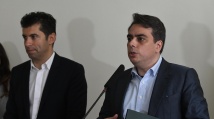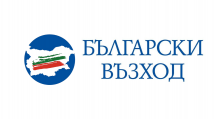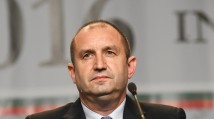2022 marks a permanent decline in public trust in institutions, a direct consequence of permanent confrontation and the inability to find a way out of the political crisis. The situation is unique not because people share dissatisfaction with the activities of a single institution, but because the negative trend is already affecting all aspects of the country’s governance, according to data from the latest study by “Alpha Research”.
All major government bodies are perceived as collectively responsible for the country’s inability to meet the challenges of the crisis.
The 48th National Assembly, formed after the October vote, is the first to start its activities with a minimum public trust of 7% against 63% distrust. Over the past 13 years, such an attitude was recorded only at the end of the 42nd National Assembly, which put the government of P. Oresharski on the air (8% confidence against 65% no confidence).
Two months after the snap parliamentary elections, parties and their leaders are also falling into the spiral of declining public confidence. The trend affects all major political players. The survey recorded an even greater outflow of intentions to participate in elections and, respectively, a loss of support from all political forces.
If elections were held next Sunday, only 35 percent of Bulgarians of age would go to the polls.

15.2% have not yet left the group of active voters, but are very undecided about which party to support. Among them stand out supporters of parties that have remained outside parliament, but also those of relatively new political formations such as “We continue the change Kiril Petkov and Asen Vassilev presented their political project “Let’s continue the change”” and “Bulgarian rise
Kiril Petkov and Asen Vassilev presented their political project “Let’s continue the change”” and “Bulgarian rise “Bulgarian Rise” calls itself a national conservative political party, but“.
“Bulgarian Rise” calls itself a national conservative political party, but“.

Although the voting intentions reproduce the structure of the parliamentary vote on 2 October, voter attitudes show a strong disillusionment with the performance of all parliamentary parties, a downward trend in voter turnout and, consequently, the possibility of an unexpected change of position in the recent snap election, indicated by “Alpha Research”.
Evaluation of the activities of the institutions
Although he retains his position as the most approved political figure, the rating of the president Romanian Radev Rumen Georgiev Radev is a Bulgarian military, major general of the reserve. Former commander of it also erodes. The reason for this is confrontation with the parties, as well as responsibility for the actions of the executive power, atypical for the presidential institution. For the first time since Radev’s election to this post, the gap between trust and distrust has narrowed to two points. Since the beginning of his second term, from February to December, the votes in favor have dropped from 51% to 36% and the negative ones have dropped from 23% to 34%. Residents of regional cities, the younger and middle generations withdraw their support for the president.
Rumen Georgiev Radev is a Bulgarian military, major general of the reserve. Former commander of it also erodes. The reason for this is confrontation with the parties, as well as responsibility for the actions of the executive power, atypical for the presidential institution. For the first time since Radev’s election to this post, the gap between trust and distrust has narrowed to two points. Since the beginning of his second term, from February to December, the votes in favor have dropped from 51% to 36% and the negative ones have dropped from 23% to 34%. Residents of regional cities, the younger and middle generations withdraw their support for the president.

Attitudes towards the fourth interim government appointed by the president are highly polarised. The cabinet receives approval from 24% and disapproval from 29%, and acting Prime Minister G. Donev – 24% approval against 22% disapproval. Most cabinet members and their activities are unknown, and one in two adult Bulgarians are unable to express an opinion about their work.

Evaluation of the year and expectations for 2023
Bulgaria is entering a year of growing political and economic crisis, amid military aggression unprecedented in Europe, with a divided and polarized society, with hopes that politicians will produce an accountable government capable of achieving meaningful national goals .
Pessimistic expectations for 2023 are understandable in this context. Since 1998, since Alpha Research has been monitoring this indicator, the level of personal optimism (34%) is the third lowest since the economic crisis of 2009-2011. Even in the stormy political years of 2016-2017, even during the Covid pandemic of 2020, the traditional New Year’s optimism and mobilization of Bulgarians did not fall below 50-55%. At the end of 2022, however, they marked a drop of 20 percentage points.

If in terms of personal life, especially among the young and middle generation, there are also optimists, then the expectations for the world and for Bulgaria in 2023. are almost unanimously negative. Only 20% hope for a positive development for Europe and for the world, strengthened by the recent end of the war in Ukraine. 27% expect the current situation to persist and conflicts not to escalate, but one in two people fear a negative development.

If negative personal and global expectations are between 27% and 50%, then expectations for the country have broken a pessimistic record: 58% expect 2023. Worse, only 18% hope for one overall positive development.
The political impasse that Bulgaria has entered with the cascade of early elections, the mutual blockade between the parties, which has led to the impossibility of forming a regular government, as well as the economic worries of the population, have an important “contribution” to these ratings. An indicator of this is the fact that on this issue the views of almost all social groups coincide. 64% believe that the economic situation in our country is worsening, which, together with the political crisis, gives rise to a universally shared public pessimism, which outlines a short-term future.

Word of 2023
In a year of personal hopes dashed, national disappointments, horror experienced by war and the thousands of lives lost and broken, expectations for 2023. cannot help but be a colorful kaleidoscope of hopes and fears, comments by “Alpha Research “.
When asked to express their expectations for the new year in one word, 38% of Bulgarians choose the word hope, 24% – concern, 21% – optimism, 7% – fear. If the rule that those societies dominated by hope and solidarity can self-organize and emerge from crises is still valid, there will also be optimism for Bulgarian society.

The data comes from a nationally representative survey, part of Alpha Research’s regular monitoring. It was conducted in the period 1 – 13 December 2022 among 1023 adult citizens from all over the country, through a standardized direct interview with a tablet. A two-level sample stratified by region and type of settlement was used, with a quota by gender, age and level of education. It is published on the agency’s website and is implemented with its own funds.
2313
40
